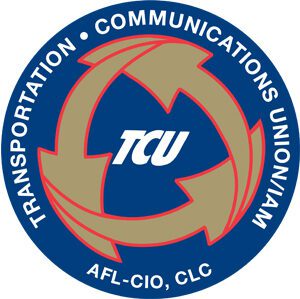In the waning days of the Bush administration, party loyalists have been moving to leave their jurisdictions tightly bound by new anti-union policies. An egregious example of this can be found in changes being proposed at the National Labor Mediation Board, an agency that is critically important to TCU members.
In early August, the NMB issued a proposal that, if the agency proceeds, might make it harder for workers to retain their union membership in certain airline and railroad mergers. Very briefly, for nearly 20 years the NMB has applied a specific standard to determine whether a union continues to have majority support from airline employees following a merger—in other words, whether these employees would continue as union members. But just a short time after Delta and Northwest announced plans to merge (in what would be the largest airline merger in American history), the NMB issued a proposal to change the language of that standard.
Three key members of Congress– House Committee on Transportation and Infrastructure Chairman James L. Oberstar, Senate Committee on Health, Education, Labor, and Pensions Chairman Edward M. Kennedy, and House Committee on Education and Labor Chairman George Miller—strongly question this plan. “We are troubled that the Board would consider adopting a new and uncertain standard for when a union may extend its certification after a merger,” they wrote to the NMB Chair, Read Van de Water and Members Elizabeth Dougherty and Harry Hoglander. Van de Water and Dougherty are the majority (Republican) members, while Hoglander is the minority member.
“Losing a union’s certification after a merger is exceptionally adverse for the workers, who lose their collectively-bargained wages, job security, and benefits, and is disruptive to stable labor relations,” the congressmen said. “Therefore, any rule change that makes it harder for workers to retain their union’s certification—essential to maintaining those contractual terms and conditions of employment—is a reason for grave concern for any represented aviation or railroad worker and the public at large.”
Minority member Hoglander says that he disagrees with his colleagues in this case: “They are pressing forward with this controversial policy revision in the middle of the merger between Delta and Northwest Airlines, and I believe that this ill-advised action will only strength the perception of bias and sow distrust and suspicion” of the NMB. He pledges to “continue to work to remove these controversial items from consideration.”
International President Bob Scardelletti reports that transportation labor has filed protests and that TCU legislative reps are monitoring the situation closely. “This,” he says, “yet again provides an example of how important the positions of the administration and its appointees are to individual union members. If this were a Democrat-majority board this would not be happening. This is an agency, just one of many, that is critically important to TCU members.”
Meanwhile, the IAM is mobilizing to fight to block the proposed Delta-Northwest merger. Members are urged to find out more about how they can help by going to the IAM’s Merger Watch page at www.goiam.org/mergers.
August 29, 2008

